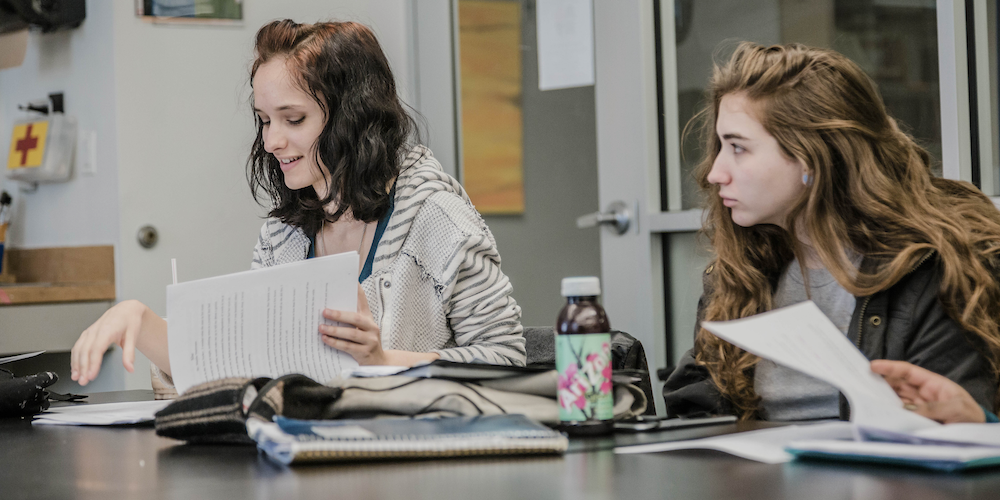
Steven Kleinman, Interim Program Director
skleinman@uarts.edu
(215) 717-6370
C O N T E N T S
Application
Learn more and apply to the Creative Writing program.
Description
The BFA in Creative Writing prepares students for professional writing careers. Within the major, students complete courses dedicated exclusively to writing, including small, intensive workshops in poetry and fiction. Students also take craft seminars focused on specialized writing forms and genres, as well as literature courses, a hands-on course in publishing, and coursework in professional skills and community programming.
In their first year, Creative Writing students acquire a working knowledge of the elements of poetry and short fiction by taking two year-long workshops–Introduction to Contemporary Poetry and Introduction to the Contemporary Short Story–which emphasize both reading and writing. Here students begin learning to read as writers, to critique material productively, and to hone their writing skills by using significant collections of contemporary poetry and fiction as models.
As sophomores, students continue to explore and refine their writing interests by taking the Intermediate Workshops in fiction and poetry, while also choosing from a diverse roster of craft seminars. These seminars are not literature courses in the traditional sense but courses that look closely at a particular form or genre with an eye to craft. These electives, offered on a rotating basis, include Creative Nonfiction, Screenplay Adaptation, Speculative Fiction, Translation and Adaptation, Graphic Storytelling, and Writing and Collaboration, in which Creative Writing majors collaborate with students from other majors.
Juniors, in addition to taking increasingly advanced writing workshops in poetry or fiction (or both), have the opportunity to explore connections between writing and professional studies. In Literary Editing and Publishing, students are introduced to all aspects of producing a literary magazine; in Careers and Community, students explore the business of writing and literary community; through internships, students gain vital professional experience. To complete the degree, students also take elective courses in Creative Writing, Critical Studies, and studio programs from across the University.
In the senior year, Creative Writing majors take a two-semester seminar in poetry or fiction, concentrated on revising work with potential for publication. The senior year culminates in a book-length thesis, an exit interview with members of the writing faculty, and a public reading.
Program Objectives
- Understand the elements of the poem and the short story and be able to use them, skillfully and deliberately, in their own work;
- Be close and careful readers, able to analyze text with a writer’s eye;
- Demonstrate knowledge of significant books, writers and trends in the contemporary landscape, as well as the context for the development of these models and traditions;
- Write ably in a range of forms and genres;
- Critique writing usefully and productively, delivering detailed, well-supported verbal and written peer feedback;
- Find and articulate connections between their writing and other artistic disciplines;
- Demonstrate practical knowledge of producing a literary magazine;
- Hone public speaking skills by reading work aloud, introducing visiting writers, and participating in public readings and other presentations;
- Engage in thorough, substantial revision of written work;
- Demonstrate a mature awareness of their own process of writing and revising, both in written self-assessments and exit interview;
- Produce a final portfolio of professional-quality writing;
- Have something to say
Program Requirements (120 credits)